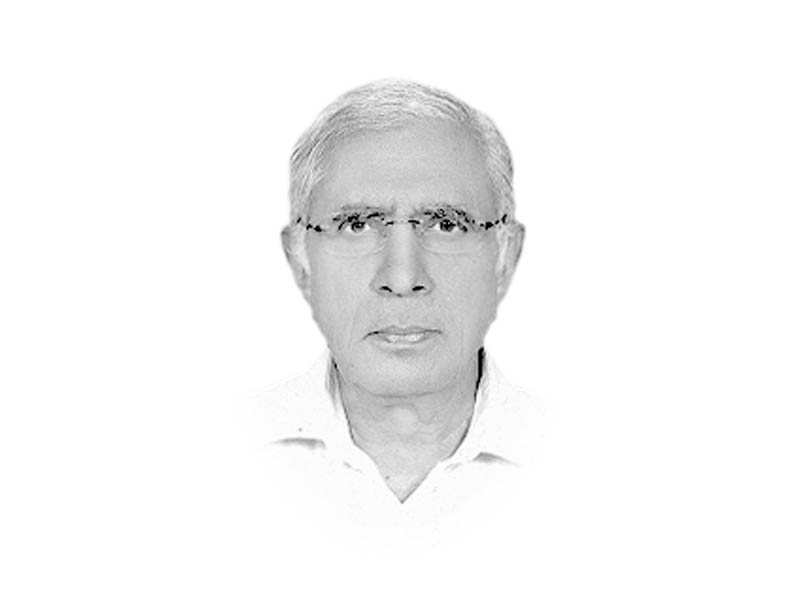
Afghan President Ashraf Ghani has written an article, “Afghanistan’s Movement of Risk and Opportunity”, in which he devotes almost one-fourth of the little over 2,000-word piece to Pakistan, most of which betrays the Afghan leader’s suspicions about Islamabad’s intentions.
In Ghani’s opinion, the US decision (to withdraw) has surprised “the Taliban and their patrons in Pakistan, and has forced them to make a choice. Will they become credible stakeholders, or will they foster more chaos and violence? If the Taliban choose the latter path, the Afghan National Defence and Security Forces (ANDSF) will fight them. And if the Taliban still refuse to negotiate, they will be choosing the peace of the grave.”
Without hinting as to what caused him to assume that the US decision had surprised Pakistan and the Taliban, Ghani states that for any negotiations over a political settlement between the Afghan government and the Taliban to succeed, the Taliban must articulate their desired end state with clarity and detail.
Explaining he adds rather crossly: “The negotiations would confront difficult issues, such as whether and how the Taliban would end their relationship with Pakistan, which provides them with support for logistics, finances, and recruitment.” What, however, would certainly appear rather too unfair to Pakistan was his attempt to discuss in the same paragraph the Taliban’s relationship with other terror organisations: “The talks must also address the Taliban’s ongoing connections to Al Qaeda, which the UN detailed in a 2020 report. Thus it is crucial that the Afghan government and the Taliban also agree on an approach against the Islamic State (or ISIS), Al Qaeda, and other terrorist groups and that our agreement includes a framework for counterterrorism that secures guarantees of support from other countries in the region and from international organisations.”
He warns rather brazenly: “It is not too late for Pakistan to emerge as a partner and stakeholder in an orderly peace process. Pakistan might also miscalculate in a way that threatens peace.”
Noting, however, that there have been positive signs that Pakistan will choose the path of regional connectivity, peace, and prosperity, “as indicated in remarks delivered in March at the Islamabad Security Dialogue by Pakistani Prime Minister Imran Khan and the Pakistani army chief of staff, General Qamar Javed Bajwa”, Ghani observes seemingly not fully convinced of Pakistani leadership’s sincerity that “those remarks could signify an important pivot from a destructive to a constructive approach to relations with Afghanistan. Now is the opportunity to put those words into action.”
Concluding his remarks about Pakistan’s intentions with regard to his country post-US withdrawal, Ghani reiterated his misgivings about Pakistan’s Afghan policy and warned once again: “If Pakistan chooses to support the Taliban, however, then Islamabad would be opting for enmity with the Afghan nation and would be foregoing the enormous economic benefits that peace and regional connectivity would offer. Pakistan would become an international pariah, as it would be left with no leverage in the aftermath of the US troop withdrawal. The Pakistani government miscalculated in its response to the US plan of action for Afghanistan and the region, but it is not too late for Islamabad to emerge as a partner and stakeholder in an orderly peace process.”
The two were never sugar and honey in their bilateral relations over the last two decades. Pakistan did provide safe havens to the Haqqani faction of Afghan Taliban in the former FATA region and looked the other way when their decision-making body, the Quetta Shura, met frequently in Balochistan’s capital. On the other hand, Ghani – who, soon after his election, had visited Pakistan on a goodwill mission – did not take long in joining up with Indian PM Narendra Modi in trying to isolate Pakistan which prodded Islamabad further on the right side of Taliban fearing encirclement by New Delhi and Kabul.
But since we had always desired an Afghan-led and Afghan-owned peace settlement, it is time perhaps to reassure Kabul of our sincere intentions with regard to Afghanistan’s future and its well-being. If possible, all three, the Prime Minister, the Foreign Minister and the COAS could visit Kabul separately to personally convey these assurances.



1729662874-0/One-Direction-(1)1729662874-0-165x106.webp)








COMMENTS (6)
Comments are moderated and generally will be posted if they are on-topic and not abusive.
For more information, please see our Comments FAQ